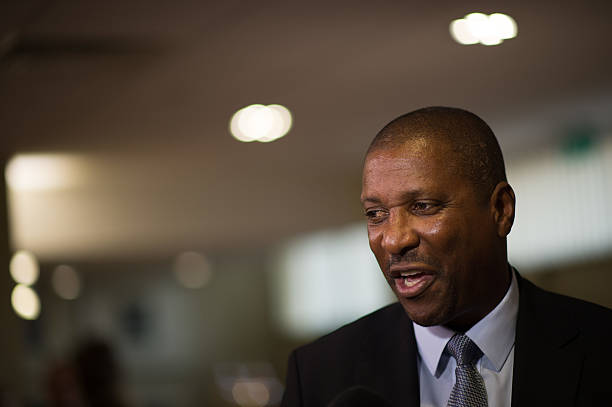Former Arsenal defender, Viv Anderson, has launched an initiative to help ex-players who suffer from depression.
Anderson, who played in 120 games for the Gunners, wants to help the startling number of former athletes who find themselves feeling as if they have no purpose once their playing days are over.
“The biggest challenge, for me, was waiting for the phone to ring, until the penny drops no one wants you out there and you have to go looking,” said the 61-year-old, who retired from playing in 1995.
“When their playing careers are over it can often be a huge shock to the system for former elite athletes.
“Not only do they have to adjust to life outside the game, but they also have to adapt their finances according to their new life.
“As the statistics show it’s often an uneasy transition, sometimes traumatic, and in the worst cases, life-threatening.”
Anderson’s scheme, known as PlayOn, is designed to help athletes from all sports cope with life once they’ve retired.
According to talkSPORT, who cite Alan Gernon’s book ‘Retired: What Happens to Footballers When the Game’s Up’, 35% of ex-professionals will experience depression.
Two out of five ex-players face bankruptcy within five years of retirement and a third get divorced within a year.
Therefore, it’s understandable that former players feel as if they’re at a loose end when they retire and this can lead to depression.
Clarke Carlisle, who played for QPR and Burnley attempted suicide three years ago after claiming to lose his sense of identity and ex-Leicester and Norwich star, Darren Eadie, revealed back in 2012 that he suffered depression and crippling anxiety as a result of having to give up the sport he loved.
“At first I was OK. It was nice being back among family and friends,” Eadie said. “I just thought I’d be able to sit around and do my own thing. But things started to change. People I’d started to trust in life let me down. In football and inside the changing room, everybody is pretty much in the same boat and same position in life. You all trust each other and the camaraderie in the team brings everybody closer.
“On the outside, things are different and you soon realise that you can’t trust everybody. I was involved in a couple of business ventures that didn’t work out. People that I thought had my best interests at heart didn’t. It is hard when the only thing you know is football. I would go into Norwich and walk around and see everybody else was happy and it depressed me even more. It was a vicious circle. Then the panic attacks started and it was completely debilitating. I’d end up having to call Kelly to come and get me. It was really scary and it paralysed me at times. It would happen up to three times a day, and cause pain in my arms and other places in my body.”
As with any profession, giving up will always be hard if it’s all that you’ve known, but unless athletes have the right people around them and proper advice upon retirement, it can go south for them much quicker.

